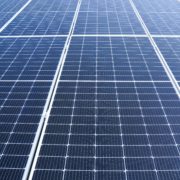How Nonprofits Can Now Qualify for Solar Tax Credits Through the Inflation Reduction Act of 2022
The Inflation Reduction Act (IRA) of 2022 has revolutionized how nonprofit organizations can access solar energy benefits. Previously, nonprofits faced significant obstacles in leveraging solar tax credits due to their tax-exempt status. However, the IRA introduces a new pathway, allowing nonprofits to benefit from the Solar Investment Tax Credit (ITC) through a Direct Pay option. In this blog post, we’ll explore how nonprofits can qualify for this credit, the steps to register their projects, and how much the solar tax credit is worth.
What is the Solar Investment Tax Credit (ITC)?
The Solar Investment Tax Credit (ITC) is a federal incentive designed to promote the adoption of solar energy. Under this credit, entities can claim a percentage of their solar installation costs as a credit against federal taxes. For 2024, the ITC is set at 30% of the total solar system installation costs. This generous percentage can significantly offset the initial costs of solar projects.
The Direct Pay Option for Nonprofits
Historically, nonprofits couldn’t benefit from the ITC because they lack federal tax liability. However, the IRA introduces a Direct Pay option that allows nonprofits to receive the full value of the ITC.
How Nonprofits Can Qualify for the Solar Tax Credit
1. Assess Energy Needs and Plan Your Project:
- Evaluate Requirements: Determine the energy needs of your organization and explore how much you could save with solar energy.
- Consult Experts: Work with solar energy providers to design a system tailored to your needs and budget.
2. Install the Solar System:
- Select a Contractor: Choose a qualified contractor for the installation of your solar panels and equipment.
- Complete Installation: Ensure the installation meets all local regulations and is done to industry standards.
3. Register Your Solar Project with the IRS:
- Create a Clean Energy Account: To apply for the Direct Pay option, nonprofits must create a Clean Energy Account on the IRS website. This account will allow you to submit and track your application for the solar tax credit.
- Visit the IRS Clean Energy Account portal at irs.gov/cleanenergy.
- Follow the instructions to set up your account by providing details about your nonprofit and your solar project.
- Once completed and approved, the IRS will issue a registration number. This number will be needed to claim the tax credit.
- Prepare and Submit Forms:
- IRS Form 3468: Complete IRS Form 3468, “Investment Credit,” which requires information about your solar installation and total costs.
- IRS Form 990-T: File IRS Form 990-T, “Exempt Organization Business Income Tax Return,” to request Direct Pay. This form allows you to receive a direct payment from the IRS rather than a tax credit.
4. Maintain Accurate Records:
- Documentation: Keep comprehensive records of the installation process, costs, and all IRS correspondence. Proper documentation is essential for compliance and future audits
5. Monitor and Receive Payment:
- Track Application: Use your Clean Energy Account to monitor the status of your application.
- Receive Funds: Upon approval, the IRS will issue a payment equivalent to 30% of your solar installation costs. Ensure you follow up to confirm receipt.
Understanding the Benefits for Nonprofits
- Significant Cost Savings: With the ITC covering 30% of installation costs, nonprofits can significantly reduce their upfront investment in solar energy, making it more accessible and affordable.
- Lower Energy Bills: Reduced energy costs can free up funds for other mission-critical activities.
- Positive Environmental Impact: Adopting solar energy helps reduce your carbon footprint and aligns with many nonprofits’ sustainability goals.
Additional Resources to Help Guide The Process
For detailed guidance on the application process and to access the necessary forms, visit the IRS website or consult with a tax professional at LMR. There are also various organizations and government resources that offer support for nonprofits interested in solar energy.
Leone, McDonnell & Roberts is Here to Help
The Inflation Reduction Act of 2022 provides a transformative opportunity for nonprofit organizations to benefit from solar energy through the Direct Pay option. With the solar Investment Tax Credit covering 30% of installation costs, nonprofits can now enjoy significant financial relief and long-term savings. By creating a Clean Energy Account on the IRS website and following the registration steps, nonprofits can take full advantage of this incentive.
If you need assistance with navigating the application process or setting up your Clean Energy Account, our firm is here to help. Contact us for expert guidance and support to ensure your nonprofit maximizes its benefits from this exciting new legislation.










